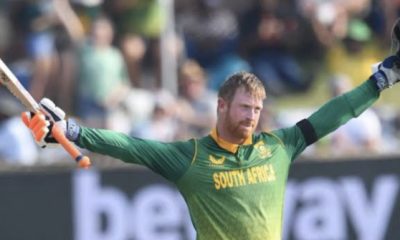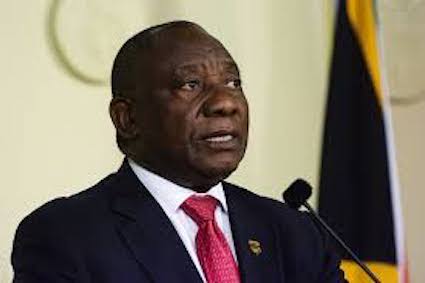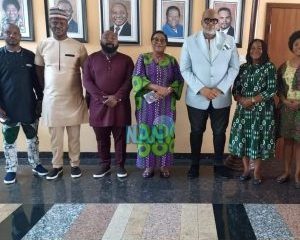Foreign News
Xenophobic: ‘We’ve Drawn The Red Line Against South Africa’
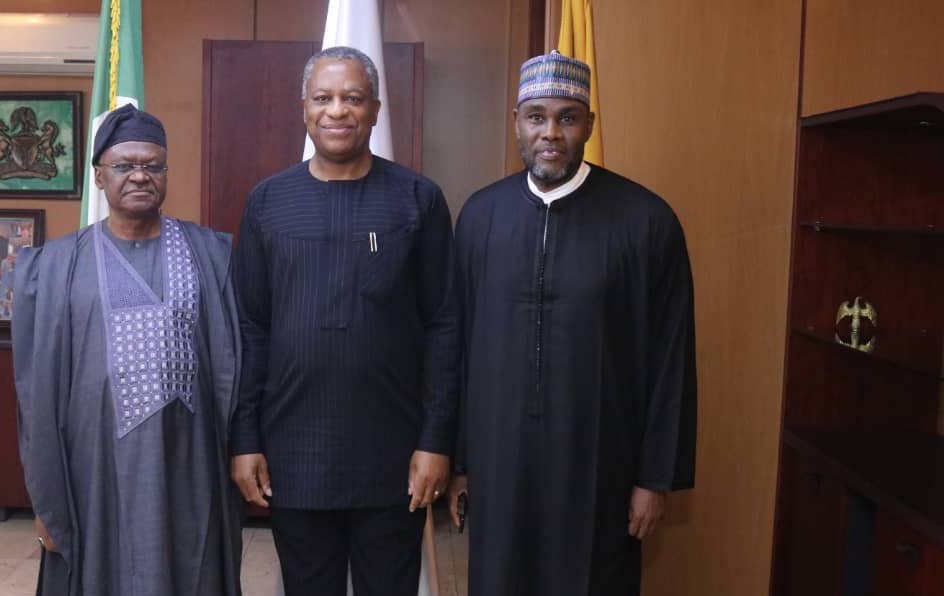
- Says It’s Unacceptable, Enough Is Enough
- Asks Nigerians Not to Retaliate
By Mathew Dadiya, Abuja
Nigerian Foreign Minister, Geoffrey Onyeama has warned the South African government against any form of xenophobic attacks on Nigerian citizens in the south coast country.
The minister also confirmed that Nigeria has boycotted the World Economic Forum scheduled for South Africa taking place on September 4-6.
Onyeama gave the warning on Wesnesday while speaking to State House correspondents after he met with President Muhammadu Bubari and Vice President Yemi Osinbajo at the Presidential Villa, Abuja.
He said that President Buhari agreed with Vice President Yemi Osinbajo not to go to South Africa under the climate of xenophobic attacks.
The minister stressed that red line has been drawn against South Africa, warning ”enough is enough. We can’t allow any of our city to be killed in South Africa and we demand full compensation for their properties destroyed in South Africa.”
He said that recalling of Nigerian ambassador to South Africa, was one of the options the government would use in resolving the issue.
He added that the final decision will be taken after the report of the special envoy sent to South Africa.
The minister while giving an update on the xenophobic attacks said: “We have made it clear that what has happened in South Africa is totally unacceptable.
”We will not accept it and as I said earlier, enough is enough and we are not going to come back to this, we are going to address it once and for all.
”This is the position of government that we are going to draw a redline here. Whatever measures that needs to be taken to ensure the safety of Nigerians in South Africa, we will take.
“We have been in touch with the South African government at the very highest level with the President of South Africa as to what we want to achieve. The special envoy has very clear directives about the commitment and the guarantees that we expect from the South African government.
”Of course, a lot of things have been circulating in the social media which have not helped matters. Some of them have really distorted the situation and because of that have impacted our response.
”So, number one is that the information we have from the High Commission, from the Consul General in South Africa is that no Nigerian life has been lost during this crisis. And I think that is very important because on social media, there is a lot of stories going around of Nigerians being killed, jumping off buildings and being burnt. This is not the case.
”What we know is that premises, shops of Nigerians have been looted and property destroyed.
Confirming the withdrawal of Nigeria’s participation in the World Economic Forum in South Africa, he said that the Vice President was scheduled to go to South Africa tomorrow (Thursday) to attend the World Economic Forum, ”clearly with this climate, he and Mr. President have agreed that he should not go to the World Economic Forum in Cape town and we are looking at other measures to take.”
He said that Mr. President was particularly disturbed at the act of vandalism that has taken place here in Nigeria, in retaliation of what is happening in South Africa.
Onyeama stressed that the government believes that they have to take the moral high ground on this matter.
”We are victims here and have made that position clear to the international community and to the South African government. We here in Nigeria must not fall into the temptation of also resorting to the acts that we are condemning in others.
”Mr. President has pleaded and he is likely to make a statement on this, addressing the Nigerian people to please desist from acts of vandalism and aggression, destroying properties.”
The Federal govgovern appealed to Nigerians back home to remain calm, warning against taking attacking south African businesses in Nigeria.
He said that ”these businesses- Shoprite, MTN and others, yes there are South African but these are subsidiaries in Nigeria owned by Nigerians. So, as attacks are made against Shoprite and other such institutions, it is actually the property owned by Nigerians within Nigeria and the people working there are Nigerians.”
”So the people that will suffer from those acts of vandalism and aggression are not South Africans or anyone else but Nigerians. But morally, it is wrong not even because of who will suffer and not suffer.
Mr. President is appealing to Nigerians, the government is acting, we cannot state everything, our everything in public domain with regards to what we are doing obviously, but we want to assure all Nigerians that this government is determined that the redline has been drawn and we will not give in on this occasion and that the South African government has to assumed its responsibilities and do the right thing. Protect Nigerians and other Africans I might say in South Africa and we have to hold them to count. Full compensation has to be paid because as we have discovered from previous experience, a lot of these Nigerians loss their property and it is a long drawn out process and every often are not compensated for it. But on this occasion, the Nigerian government is going to fight for full compensation and hold the government of South Africa to count. And we are going to consider other options to ensure that the message gets across to the government of South Africa.
It is not a question of weakness or anything of the sort but we have to move decisively and that is precisely what the government is going to do.
We have all the options on the table and on the return of the special envoy, we will all sit down and look at all the options and assess the report.
And there is no measure that we consider to be appropriate that we will shrink from taking. We will take whatever and all measures necessary to ensure that never again are we going back to this whole issue of Nigerians being attacked and properties destroyed and in some cases killed in South Africa.
It is an ongoing story, we will keep you informed but the important message is that Mr. President is fully engaged in this process, he is being briefed on an hourly basis and we are not going to shrink from taking all the necessary steps to make it the last time this kind of thing will happen.”
Asked to disclose the identity of the envoy and measures being taken to protect Nigerians, Onyeama said: “the identify of the special envoy will be revealed in due course. There are certain reasons why we don’t want to do so immediately.
“On measures being taken, of course the security agencies are fully aware of the threats that are now existing to various businesses in Nigeria at the moment and they are fully mobilized to address that.”
On if the bone of contention has been established, he said: our basic premise is this, there is no justification whatsoever for individuals or coming as a group to take the laws into their own hands and to target Nigerians. This is totally unacceptable.
He added: ”It is important to note that there is now an African consensus building around this, it is totally abhorrent and unacceptable that there should be xenophobia against Africans on African soil, not to talk about what a Nigeria has done for South Africa, even everybody knows that during the years of apartheid but nevertheless we understand that the president of Rwanda will not attend the world economic forum, the president of Democratic Republic of Congo, the president of Malawi, the Zambian football team that were supposed to play in South Africa also stepped down that match and is not going ahead with it. And so is the African Union, the president of the African Union has also come out with a statement condemning what is happening in South Africa. A large number of victims are Nigerians and we will not tolerate it.”
On why the Nigerian High commissioner has been recalled when the envoy was on his way to South Africa, he said: “No. it is one of the options we are considering. He will need to come back but we feel he should come back after the envoy has gone there, so that Mr. President will also have the benefits of the full and comprehensive brief from all the individuals who are the position to have seen things at a close range.”
Foreign News
World Leaders React to Biden’s Withdrawal From U.S. Presidential Race
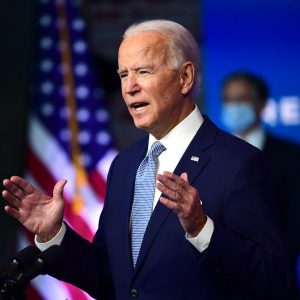
President Joe Biden’s decision on Sunday to end his campaign to seek reelection in November is generating reactions from foreign leaders.
Canadian Prime Minister Justin Trudeau said he had known President Biden for years and that “He’s a great man.
“Everything he does is guided by his love for his country.
As President, he is a partner to Canadians — and a true friend.“To President Biden and the First Lady: thank you.
”German Chancellor Olaf Scholz in his reaction on X, said, “Joe Biden has achieved a great deal – for his country, for Europe, for the world,
“Thanks to him, transatlantic cooperation is close, NATO is strong, and the U.
S. is a good and reliable partner for us.“His decision not to run again deserves recognition.”
Reacting in a statement, new British Prime Minister Keir Starmer said, “I respect President Biden’s decision and I look forward to us working together during the remainder of his presidency.”
He added: “I know that, as he has done throughout his remarkable career, President Biden will have made his decision based on what he believes is in the best interests of the American people.”
Israeli defense minister Yoav Gallant on his part thanked Biden for his unwavering support of Israel over the years.
“Your steadfast backing, especially during the war, has been invaluable.
“We are grateful for your leadership and friendship,” he added.
SPANISH PRIME MINISTER PEDRO SANCHEZ ON X:
Spanish prime minister Pedro Sanchez in his comments on X said he admired “the brave and dignified decision of president @JoeBiden.
“Thanks to his determination and leadership.
“The U.S. overcame the economic crisis after the pandemic and the serious assault on the Capitol and has been exemplary in its support for Ukraine in the face of Putin’s Russian aggression.
“A great gesture from a great president who has always fought for democracy and freedom.”
Irish prime minister Simon Harris said in a statement: “On behalf of the people and government of Ireland. I … would like to thank you Mr President for your global leadership and your friendship as you make your announcement that you will not stand in the 2024 U.S. Presidential election.”
Harris who reacted in a statement added:
“Joe Biden, in all the offices he has held, has always been an unwavering voice and passionate worker for peace on the island of Ireland and our country owes him a great debt for this.”
Some of the other world leaders who reacted to Biden’s withdrawal are: Kremlin spokesperson Dmitri Peskov who in an interview with shot News outlet, said: “The elections are still four months away.
”And that is a long period of time in which a lot can change.
”We need to be patient and carefully monitor what happens.”
”The priority for us is the special military operation,” Peskov added, referring to the war in Ukraine.
Norwegian prime minister Jonas Stoere, his Polish and Czech counterparts Donald Tusk and Petr Fiala respectively reacted to Biden’s withdrawal from the U.S. presidential race. (Reuters/NAN)
Foreign News
1 killed as Kenyan Anti-government Protests Intensify Again
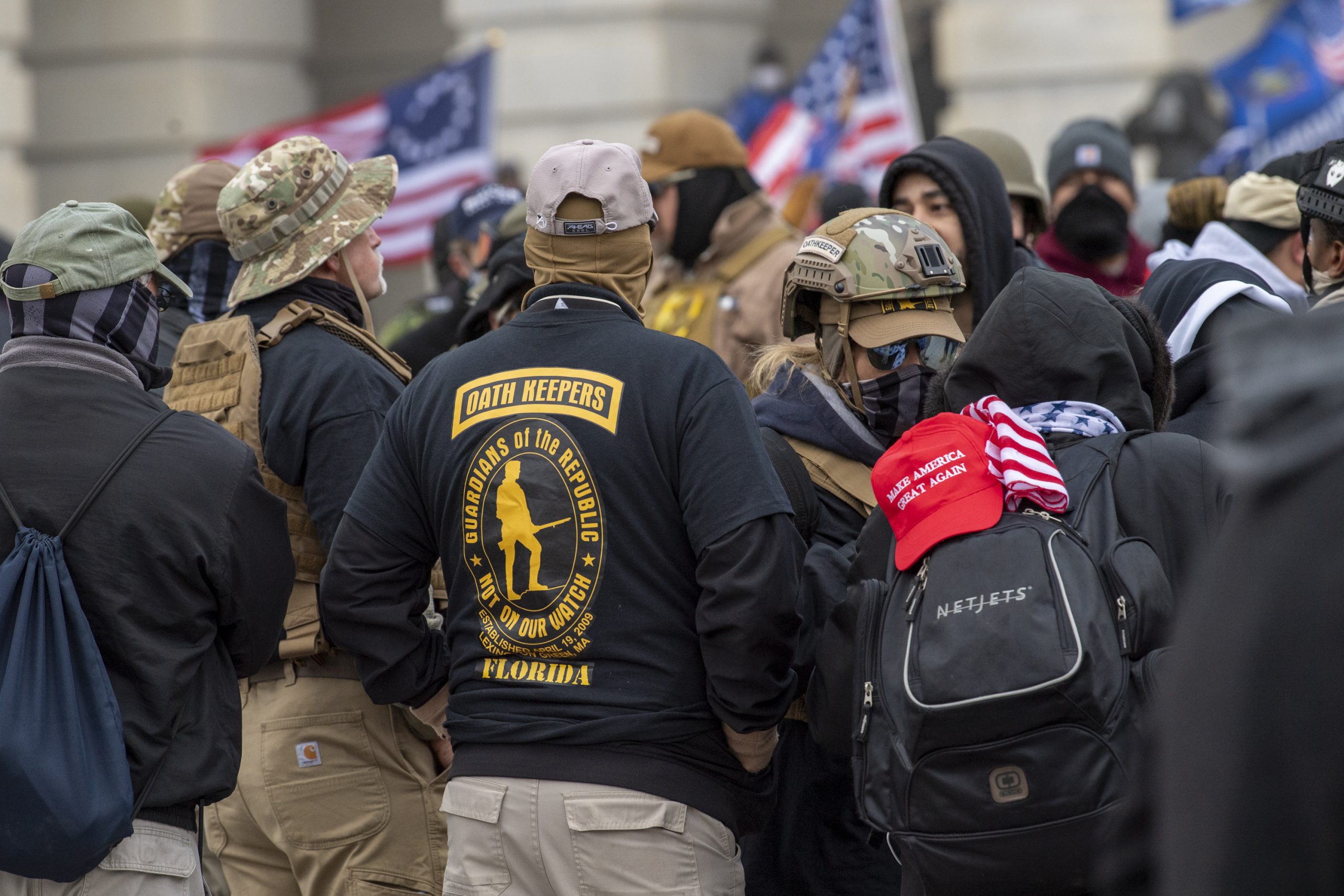
At least one person was killed in renewed anti-government protests across Kenya on Tuesday, a Reuters reporter said, as police clashed with demonstrators demanding that President William Ruto step down.
Youth-led nationwide protests that broke out a month ago against proposed tax hikes have continued even after Ruto withdrew the legislation and fired almost all of his cabinet.
Activists say they want Ruto to resign and are calling for systemic changes to clean up corruption and address poor governance.
At least 50 people have been killed in the protests to date, the government-funded Kenya National Commission on Human Rights (KNCHR) said on Tuesday.
In Kitengela, a town on the southern outskirts of the capital Nairobi, police fired repeatedly in the direction of hundreds of protesters, some of whom were throwing rocks, Reuters TV footage showed.
The protesters also burned tyres, waved Kenyan flags and chanted “Ruto must go!”
A Reuters reporter saw the body of one protester lying on the ground with blood oozing from a head wound.
The national police spokesperson declined to comment.
Tuesday’s protests appeared to be some of the biggest since Ruto withdrew the tax increases on June 26.
The Nation newspaper reported demonstrations in at least 23 of Kenya’s 47 counties.
In Nairobi’s city centre, riot police fired tear gas at several dozen protesters. An ambulance service posted footage on X showing its personnel carrying away someone injured there on a stretcher.
Demonstrators in the coastal city of Mombasa waved palm fronds as they marched, while litter burned in the street, images on Kenyan television channels showed.
The protests have created the biggest crisis of Ruto’s two years in power.
With Kenya spending over 30 per cent of its revenues just paying the interest bills on its debt, he has been caught between the demands of lenders to cut deficits and a hard-pressed population reeling from rising living costs.
“Ruto is very incompetent. He has no leadership skills. He just wanted the title of president of this country,” said one protester in Nairobi who did not give his name.
“The guy is a puppet to the IMF. That is it. Whatever he’s doing, he’s doing for the IMF.”
The International Monetary Fund (IMF) has been a major target of the ire of young Kenyan protesters, who have accused it of being the driving force behind the proposed tax hikes.
The IMF has said its main goal through its lending programmes with Kenya has been helping the country overcome economic challenges and improve its people’s well-being.
Ruto’s office had announced “multi-sectoral” talks for this week to address grievances raised by the protesters, but there was no sign they had begun.
Most of the leading activists behind the protests have rejected the invitation, instead calling for immediate action on issues like corruption.
Ruto’s spokesperson did not respond to a request for comment.
The protests began peacefully but later turned violent.
Some demonstrators briefly stormed parliament on June 25, and the police opened fire.
In addition to the 50 deaths, 413 people have been injured, 682 have been arbitrarily detained and 59 have been abducted or are missing in connection with the protests, KNCHR said.
Ruto has promised to investigate accusations of abuse but has broadly defended the conduct of the police and accused criminals of hijacking peaceful protests.
On Monday, he accused the Ford Foundation, an American philanthropic organisation, of sponsoring those who had caused “violence and mayhem” in Kenya, without providing evidence.
The Ford Foundation rejected the allegation, saying it did not fund or sponsor the protests and has a strictly non-partisan policy for its grant-making. (Reuters/NAN)
Foreign News
Court Nullifies ECOWAS Commission Staff’s Dismissal
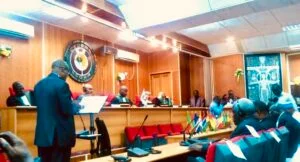
The ECOWAS Court of Justice has nullified the dismissal of Mr Momodu Cham, a former staff of the Commission, saying it breached Article 69 of the ECOWAS staff regulations.
Cham had filed the suit following his dismissal from his position as a Procurement Officer with the Inter-Governmental Action Group against Money Laundering and Terrorism Financing (GIABA), a specialised ECOWAS agency.
The applicant, a community citizen residing in Banjul, Gambia, had joined the Economic Commission for West African States (ECOWAS) and its President, as first and second Respondents, respectively, in the suit challenging his sack.
Delivering judgment, Justice Dupe Atoki, the Judge Rapporteur, held that the cessation of Cham’s salary by the Commission before the exhaustion of the appeal process was arbitrary, unlawful, null, and void.
According to Justice Atoki, the action of the Commission is contrary to Article 73(b) of the ECOWAS Staff Regulations.
The Court, therefore, ordered the Respondents to pay Cham his salary arrears and other entitlements from January 2021 to June 2021, as compensation.
It further ordered the Commission to pay Mr Cham’s salaries and emoluments from July to December 2021 as compensation for the unlawful dismissal.
“Requesting an on-the-spot response to charges without prior notice or an opportunity to prepare a defense violates procedural safeguards outlined in the ECOWAS Staff Regulations.
“The regulations are designed to ensure an Applicant’s rights are fully maintained until the Council’s final decision.
“Consequently, the summary dismissal of the Applicant by the 2nd Respondent breached Article 69 of the regulation.
“Therefore, the cessation of the Applicant’s salary and other emoluments after invoking the right of appeal is a violation of Article 73(b) of the ECOWAS Staff Regulations,” Justice Atoki held.
The Court, however, declined to grant any orders for mandatory injunctions against the Commission and reinstatement of the applicant .
The Applicant had contended at the trial that he was suspended on July 11, 2019, following a forensic audit report by Ernst and Young UK, which implicated him in irregularities related to the purchase of IT equipment for GIABA.
He said that on Jan. 26, 2021, he was summarily dismissed, and his salaries and emoluments were withheld in violation of the ECOWAS Staff Regulations.
Cham had prayed the court to grant him several reliefs, including a declaration that his dismissal was arbitrary, null, and void.
He also sought an order setting aside his dismissal and the immediate payment of his salary arrears and other entitlements from January 2021.
The applicant had also prayed for his reinstatement to his position as a Procurement Officer and compensation for costs incurred in prosecuting the suit.
The Respondents, in their defense, had however, maintained that the applicant was properly suspended and later dismissed following a forensic audit report and a subsequent query.
They had also argued that the dismissal was appropriate due to the allegations of gross misconduct, embezzlement, theft, fraud, and abuse of trust.
The three-member panel also had Justices Gberi-bè Ouattara, presiding, and Sengu Mohamed Koroma, as a member.(NAN)

